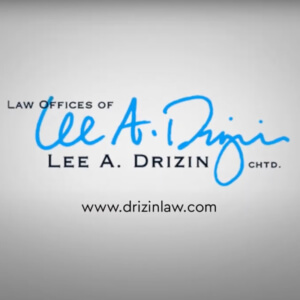Three things to ask if your seller dies before the close of escrow
You represent a seller and during the course of the transaction, your client passes away. Now what? The residential purchase agreement is still binding but before the transaction can proceed, the following issues will need to be determined:
How is the property titled?
If the property is owned by two persons as joint tenants with rights of survivorship, then the entire ownership will vest in the surviving joint owner upon the filing of an Affidavit of Death of Joint Owner with the Clark County Recorder’s Office, and the transaction can proceed.
The same result would occur if the property were titled as “community property with rights of survivorship” and the title would vest in the surviving spouse upon the recording of the affidavit. However, there would be a substantially different outcome if the property was merely titled as “community property” and omitted the survivorship language. Under such circumstances, a probate proceeding would be necessary in order to proceed with the sale of the deceased spouse’s interest in the property.
Did the seller execute a will prior to entering into the transaction?
If the client is the sole owner of the property, whether the seller executed a Last Will and Testament or a Revocable Living Trust will determine how the transaction will proceed. In the event the seller executed a will, then a petition will need to be filed in order to commence a probate proceeding and appoint a personal representative. Once the will is admitted by the Court and a personal representative is appointed, he or she has the authority to proceed with the completion of the transaction.
NRS 148.330 provides that “if a decedent, at the time of death, was a party to a contract for the purchase of property, the interest in the property and under the contract may be sold by the personal representative in the same manner as if the decedent had died seised of the property.”
However, the statute also provides the sale is to proceed in accordance with the same proceedings provided for the sale of real estate in probate. As a result, a petition to confirm the sale will be filed and the court will approve the transaction if it is satisfied that the sum offered represents the fair market value of the property.
There will generally be a delay of approximately four months to get to this point. However, the buyer may still not be entitled to complete the purchase because other parties desiring to acquire the property may file a Notice of Intent to Overbid and will be permitted to submit overbids on the hearing date.
Was the property transferred into a revocable living trust?
If the seller had executed a revocable living trust and failed to transfer the property into the trust, then the property may be subject to the probate proceedings discussed herein. Alternatively, there may be a chance that a petition can be filed with the Court seeking a determination that despite the seller’s failure to transfer the title, that the property should, nevertheless, be considered part of the assets of the trust.
However, assuming the property was transferred to the trust prior to the seller’s passing, the transaction should proceed smoothly. Most trusts nominate a successor trustee who would then step into the shoes of the seller and have authority to complete the transaction. A Certificate of Incumbency reflecting the death of the grantor and the assumption of the role of successor trustee would be filed with the Recorder’s Office.
If you are interested in learning more about how estate planning issues can affect real estate transactions, don’t hesitate to contact our office to RSVP for our upcoming one-hour free continuing education course being held on June 15, 2021 at 12:00 p.m. or sign up for our real estate blog to learn about future courses!
For more than 30 years, Attorney Lee A. Drizin has practiced in the areas of estate planning, probate, trusts, guardianship, and real estate matters representing clients throughout the state of Nevada.
Drizin Law is providing this information for educational purposes only. It should not be construed as legal advice or a legal opinion as to any specific facts or circumstances. This information is based on general principles of Nevada law at the time it was created and you should be aware laws frequently change. Moreover, the laws affecting you may differ depending on the circumstances. You should consult with a qualified attorney in your own state or jurisdiction concerning your particular situation. Review of this information does not create an attorney-client relationship.










